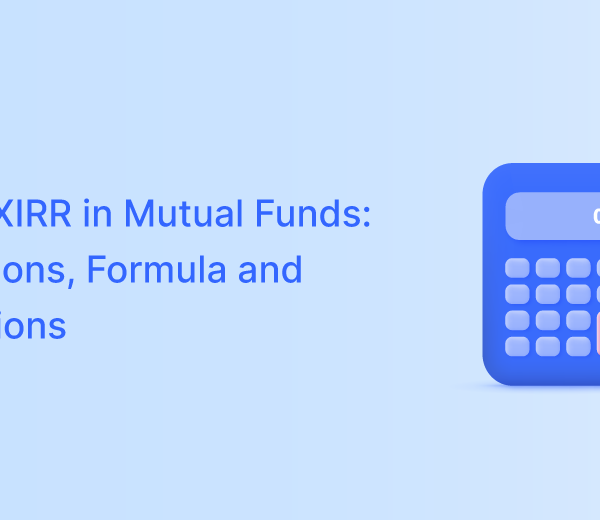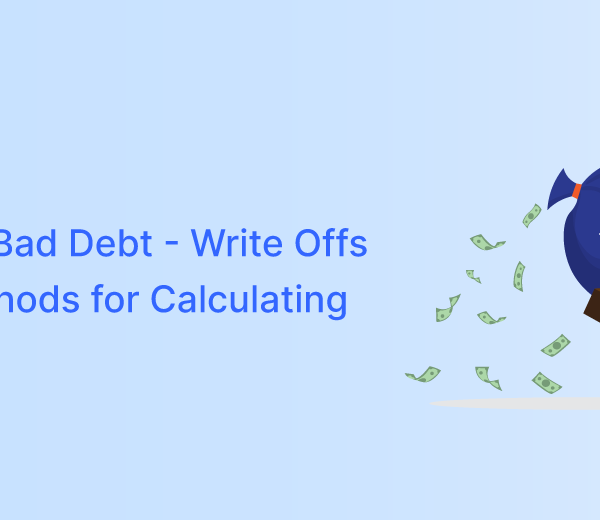As you journey through life, your money management strategies will evolve, as you would want to find a good balance between saving and investing for your short-term goals, as well as long-term security. If you wish to secure your future and have a comfortable life in your golden years, you need to think about putting money into pension plans. While retirement may seem like a distant concern, investing in pension plans early can offer considerable advantages in the future.
In this blog, we will be explaining what a pension plan is and why you should invest in one as soon as possible.
What Is A Pension Plan?
A pension plan is a financial retirement plan that helps you manage your retirement expenses and other family financial obligations effortlessly. In a retirement plan, you invest a decided amount in return for periodic payments, lump-sum, or a combination of both post-retirements. These plans are aimed at securing your financial future post-retirement.
Why Should You Invest In A Pension Plan?
Here are the four major reasons why getting a pension plan should be a top priority for you.
Financial Independence Post-Retirement
One of the most important reasons to get a pension plan is that it guarantees financial independence after retirement. As we get older, we have to be financially independent so that we can live a happy and fulfilling life. Financial independence post-retirement is one of the greatest gifts you can give yourself.
Ensuring A Regular Income Stream
Once you retire, your active income from a job or business stops, but the expenses continue. From healthcare costs to daily living expenses, life post-retirement comes with its own set of financial obligations, A pension plan ensures that you have a reliable income stream even after you have stopped working. This regular income will help you cover your monthly expenses without sacrificing your current lifestyle.
Easing The Burden On Family
If you depend on your family’s support during your retirement, it can sometimes lead to financial strain on your loved ones. When you invest in a pension plan, you are essentially taking responsibility for your future needs and reducing any potential burden on your family.
Planning For Increasing Healthcare Costs
As you become older, your medical expenses may increase, and these can burn a huge hole in your wallet. Here’s where a pension plan can be of help to you, as it offers the financial cushion needed to manage medical costs without derailing your other financial priorities. Having a steady source of income from your pension plan can help you pay for healthcare costs without burning through your emergency fund or other savings.
Protection Against Inflation
Inflation is one of the biggest threats to the value of your money in the future. Even a modest inflation rate can considerably erode the value of your savings. A pension plan, especially one that offers inflation-adjusted returns, can help protect your money from inflation and make sure that your purchasing power stays the same.
Below are some of the investment instruments that you can include in your retirement plan to beat inflation.
Inflation-Indexed Bonds (IIBs)
IIBs are a type of bond designed to protect investors from rising inflation. Suppose an investor purchases an IIB with a face value of ₹10,000, a ten-year maturity, and a coupon rate of 3% above inflation. If the inflation rate is 4% when the bond is issued, the investor will receive an annual interest payment of ₹310 (3% of ₹10,400) in the first year.
If the inflation rate increases to 5% in the second year, the investor will receive an annual interest payment of ₹327.60 (3% of ₹10,920) in the second year. The coupon rate will remain at 3% above inflation throughout the ten-year tenure.
This process will continue until the maturity of the bond, ensuring that the investor receives a fixed income stream that keeps pace with inflation. If the inflation rate is lower than the fixed interest rate, then the total interest payment would be lower than the fixed rate. On the other hand, if the inflation rate is higher than the fixed interest rate, then the total interest payment would be higher, offering investors some protection from inflation.
Equity & Equity-Based Instruments
Historically, equity has been able to offer higher returns over the long term. According to the Global Financial Development Database, the average stock market return for Indian indices stood at 21.5% in 2021.
The long-term average return of the CNX Nifty in the past 10 years is around 13.23%, which is significantly higher than the average annual inflation rate (5.42%) in the same period. In the long run, stock markets bounce back, evening out risks and losses. Hence, goal-based and well-researched stock market investments can help to beat inflation.
Gold
Many investors consider gold to be the ultimate safe-haven hedge against inflation. Historically, gold has demonstrated the ability to maintain its purchasing power over time, often outperforming other assets during periods of rising inflation. As prices rise across the economy, investors may buy more gold and other precious metals to preserve the purchasing power of their money.
Tax Benefits
Pension plans come with attractive tax benefits that make them an even more appealing investment option. In India, the government offers tax deductions to incentivise individuals to save for their retirement through pension plans.
Tax Deductions On Contributions
In India, for example, contributions made towards a pension plan like the National Pension System (NPS) are eligible for tax deductions under Section 80C of the Income Tax Act. You can claim a deduction of up to ₹1.5 lakh on contributions. On top of that, under Section 80CCD(1B), you can get an additional deduction of up to ₹50,000 for NPS contributions.
Tax Benefits During The Accumulation Phase
During the accumulation phase of a pension plan, the earnings on your investments grow tax-deferred. This means you don’t have to pay any tax on the returns you earn during the plan’s growth period. This allows your wealth to grow faster.
For example, in NPS, your contributions will earn returns and accumulate without any tax deduction occurring.
Tax Benefits On Maturity
Pension plans often come with favourable tax treatment at the time of maturity. For example, upon retirement, a portion of the lump sum payout from certain pension schemes may be tax-free, providing significant tax savings.
In NPS, you can withdraw 60% of the accumulated corpus in a tax-free lump sum manner and the remaining 40% will be mandatorily annuitised.
These tax benefits not only reduce your tax liability but also encourage disciplined long-term savings, helping you grow a robust retirement corpus while, at the same time, reducing your tax burden.
Disciplined Long-Term Savings
When it comes to saving or investing, one of the biggest challenges that is faced by many people is sticking to a long-term strategy. When you invest in pension or retirement plans, you need to regularly save or invest and continue doing so for several years to ensure that you build a robust retirement fund.
Instilling Financial Discipline
Pension plans usually require to make regular contributions. Whether it’s a monthly, quarterly, or annual investment, these contributions enforce a savings habit that builds up over time, Generally, the money invested in these instruments will be locked in for a long duration, making it less likely for you to dip into your retirement savings for other needs.
Compounding Over Time
The power of compounding is a major factor in building wealth over the long term. When you invest in building your retirement fund, your money grows over the years during the effect of compounding. Even small contributions made over a long period of time can grow into a significant retirement corpus. The longer you stay invested, the greater the compounding effect, which makes pension plans an excellent vehicle for long-term wealth accumulation.
For example, you start contributing ₹10,000 every month to an NPS at the age of 25. You expect an annual interest rate of 8% per annum. 40% of the corpus will be used for purchasing the annuity and you expect a return of 6% per annum on the annuity. The period of annuity is 20 years.
Here’s how much money you will make in NPS:
Your lump sum amount will be over ₹1.33 crores.
Your pension amount every month will be nearly ₹64,000 per month.
You can use our NPS calculator to see the growth potential of your contribution.
Pension Plans – The Conclusion
While retirement may seem like a far-off event, you should start planning for it as soon as you start working. A pension plan helps to secure your future and ensure a comfortable life after retirement. By offering financial dependence, protection against inflation, tax benefits, and a disciplined savings approach, a retirement plan is one of the most reliable tools to protect your golden years.
So, whether you are in your 20s or approaching your 40s, it’s never too early or too late to invest in a pension plan. The sooner you start, the larger your retirement corpus will be and this can help you retire on your own terms. Hence, make pension planning a priority today with Koshex.
With Koshex, you can choose to invest in Mutual Funds and Digital Gold to grow your wealth. You can also track your EMIs and PF through our app. Manage and grow your money like a professional with our app. Sign up now!
Frequently Asked Questions (FAQs)
Can I access my pension plan funds before retirement?
Most pension plans have a lock-in period, meaning you cannot withdraw funds until a certain age, which is typically your retirement age. However, some plans may offer partial withdrawal options in case of emergencies or specific conditions, but early withdrawals may come with penalties or tax implications.
How much should I contribute to my pension plan?
The amount you should contribute depends on your retirement goals, current financial situation, and how much income you will need post-retirement. Financial advisors often recommend setting aside at least 10-15% of your income towards retirement savings.
Can I increase my pension plan contributions over time?
Yes. Many pension plans offer the flexibility to increase contributions over time. As your income grows, you can increase your savings to build a larger retirement corpus and take advantage of tax benefits on higher contributions.









Leave a Comment